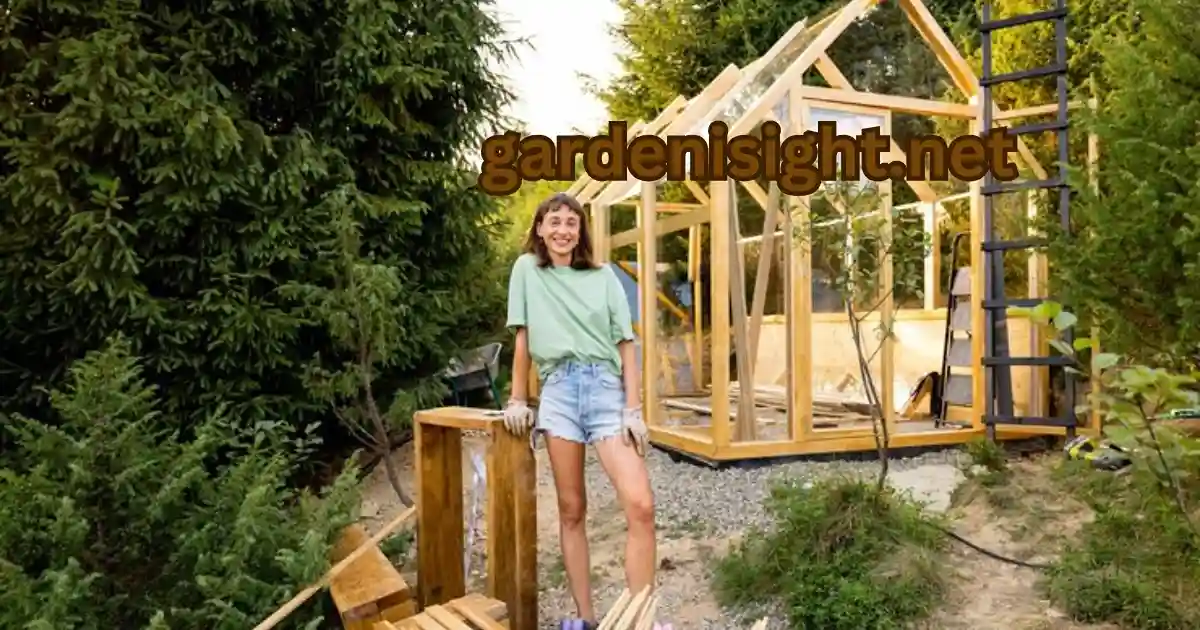Imagine having extra space for a growing family, a dedicated home office, or even a rental property – all within the bounds of your own garden.
Building a house in garden can be an excellent way to achieve these goals. However, it’s essential to understand the rules and regulations before you begin.
This guide provides all the information you need to know about building a house in garden.
Planning Permission and Building Regulations
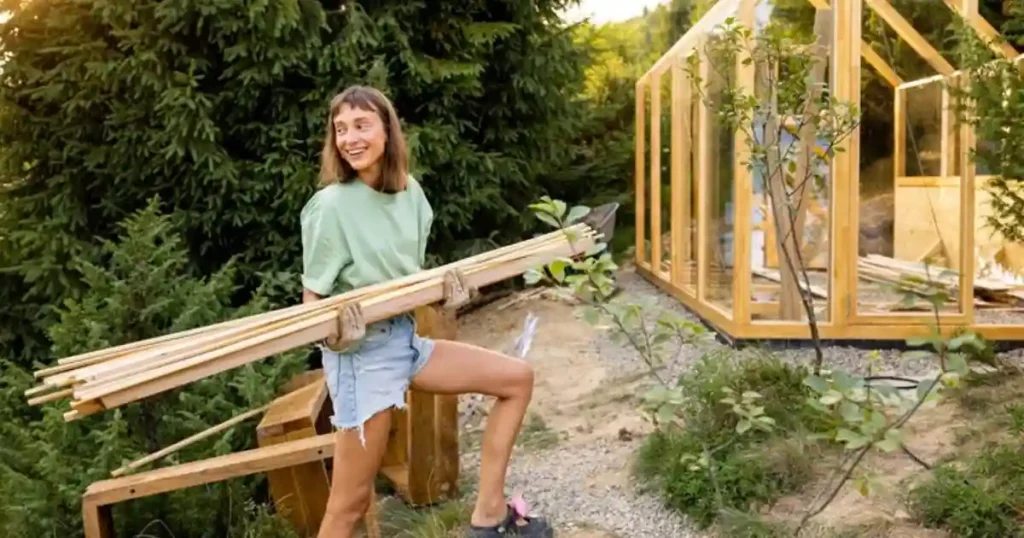
In almost all cases, you need planning permissions to build in garden. Whether you’re considering a summer house, a tree house, or a full-fledged dwelling, you’ll likely need planning permission from your local council. This permission ensures your project aligns with local development plans and doesn’t negatively impact your neighbors or the environment.
Beyond planning permission, you’ll also need to comply with building regulations. These regulations set standards for structural safety, fire safety, energy efficiency, and accessibility. Failing to meet these standards can lead to costly rework or even legal issues down the line.
To help you understand the different permissions, here’s a quick reference table:
| Permission Type | Purpose | Who to Contact |
|---|---|---|
| Planning Permission | Approves the location, size, and design of your new house | Your local planning authority |
| Building Regulations Approval | Ensures your house meets safety and quality standards | Your local building control department |
| Party Wall Agreement | Needed if your building work will affect shared walls with neighbors | Your neighbors directly |
How do zoning laws affect building a house in garden?
Zoning laws divide land into different categories (like residential, commercial, or industrial) and specify how each category can be used. Your garden likely falls within a residential zone, but there may be restrictions on what you can build.
For example, you might be allowed to build a wooden house or a tiny house, but not a large three-story home. Always check your local zoning regulations before making any plans.
Factors That Can Influence Your Project
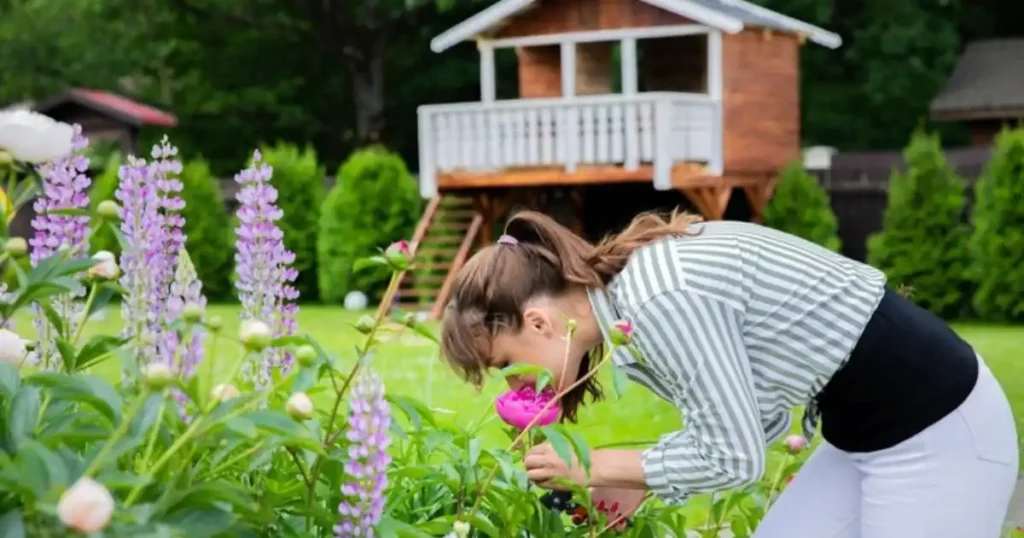
Several factors can influence your ability to build a house in your garden:
- Garden Size: A larger garden naturally offers more flexibility. What size house can I build in my garden? This depends on local regulations and how much outdoor space you want to retain.
- Location: If you live in a conservation area or near protected trees, you may face stricter rules.
- Access: Does your garden have its own access point? This might be necessary for a separate dwelling.
- Impact on Neighbors: Consider how your project might affect your neighbors’ privacy, sunlight, and noise levels.
Costs Involved in Building a House in Garden
The cost can vary significantly depending on the size, design, materials used, and whether you hire professionals or take a DIY approach. Here’s a breakdown of potential expenses:
| Expense Category | Description |
|---|---|
| Design and Planning | Architect fees, planning application fees, surveys |
| Site Preparation | Clearing the land, groundworks, foundations |
| Construction | Materials (bricks, timber, roofing), labor costs |
| Utilities | Connecting to water, electricity, gas, and sewage |
| Finishing Touches | Interior and exterior finishes, landscaping |
Selling a House Built in Your Garden
It’s possible to sell a house you build in your garden, but there are some key things to keep in mind:
- Separate Title: You might need to create a separate legal title for the new house, effectively dividing your property.
- Planning Conditions: Your planning permission may include conditions that restrict selling or using the new house for certain purposes.
- Market Value: Building a new house can affect the value of both the new dwelling and your existing property.
Building a Tiny House in Garden
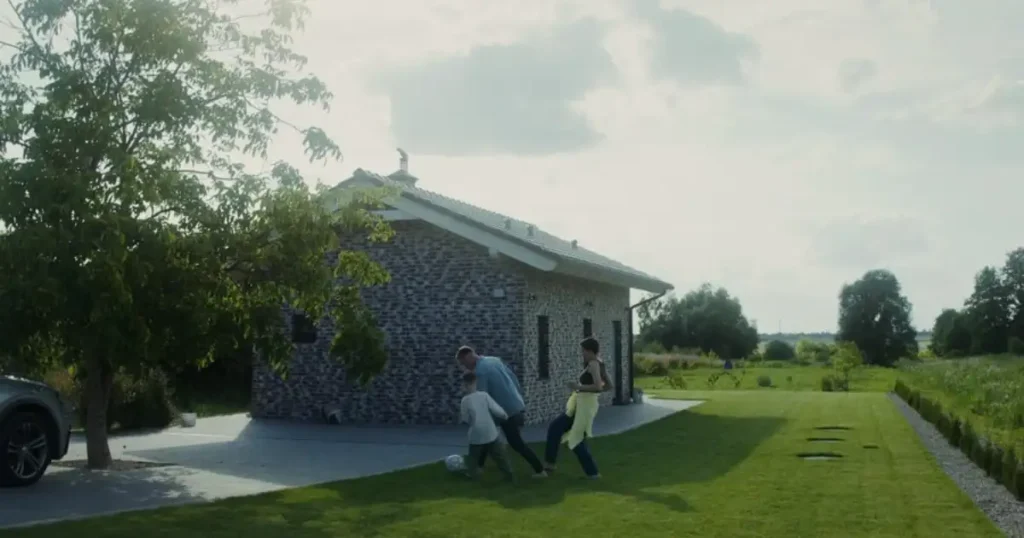
Tiny houses are a popular option for those seeking affordable and sustainable living. However, they still need to comply with planning permission and building regulations. Check with your local council for specific guidance on tiny houses in your area.
Legal Steps to Building a House in Garden
Here’s a simplified overview of the process of legal steps to building a house in backyard:
- Research: Check local planning policies, zoning regulations, and building regulations.
- Consult Professionals: Talk to an architect, a planning consultant, and potentially a surveyor.
- Submit Planning Application: Prepare a detailed application with plans and supporting documents.
- Obtain Planning Permission: If your application is approved, you’ll receive formal planning permission.
- Apply for Building Regulations Approval: Submit your building plans to ensure they meet safety and quality standards.
- Construction: Start building work with qualified and insured builders.
- Final Inspection: Building control will inspect the completed house to ensure it complies with regulations.
Turning Your Garden into a Residential Property
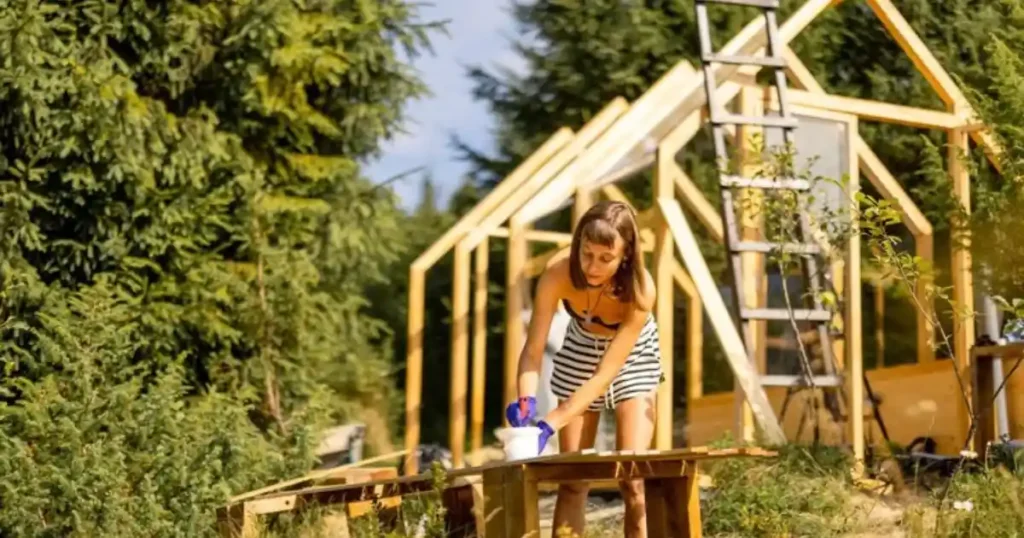
While you can build a house in your garden, turning the entire garden into a separate residential property is more complex. This usually involves subdividing the land and creating a new legal title, which requires professional help from surveyors and legal experts.
Conclusion
Building a house in garden can be a fantastic way to create more living space, accommodate family members, or generate rental income.
However, it’s crucial to understand the planning process, building regulations, and legal requirements involved. By carefully researching, consulting with professionals, and following the correct procedures, you can increase your chances of successfully building your dream garden house.
Remember to check your local council’s website for specific guidelines and resources, and don’t hesitate to seek expert advice throughout the process.
FAQs
Some of the frequently inquired questions regarding your query about, ‘CAN YOU BUILD HOUSE IN GARDEN”, are given as:
Can I Build a House in My Garden Without Planning Permission?
Generally, no. Most garden house projects require planning permission. However, some smaller structures like sheds or greenhouses might fall under “permitted development rights,” meaning you can build them without planning permission.
Can I Build a House in My Garden for My Parents?
Yes, you can build a house in your garden for your parents, often referred to as a “granny annex” or “accessory dwelling unit.” However, you’ll still need planning permission and must comply with building regulations. You might also need to consider factors like access, privacy, and the impact on your neighbors.
Can I Build a House in Garden UK?
The rules and regulations for building a house in your garden are specific to each country. In the UK, you’ll need to follow the planning system and building regulations set by the UK government and your local council. This guide provides a good overview, but always check with your local authority for the most up-to-date and accurate information.
Can I Build a House in My Garden Australia?
Australia has its own planning and building regulations that vary between states and territories. You’ll need to research the specific rules in your area and obtain the necessary approvals from your local council.
Can I Build a House in My Garden Canada?
Similar to other countries, building a house in your garden in Canada requires adherence to local planning and building codes. Contact your municipal government for information on zoning regulations, permits, and building requirements in your area.
